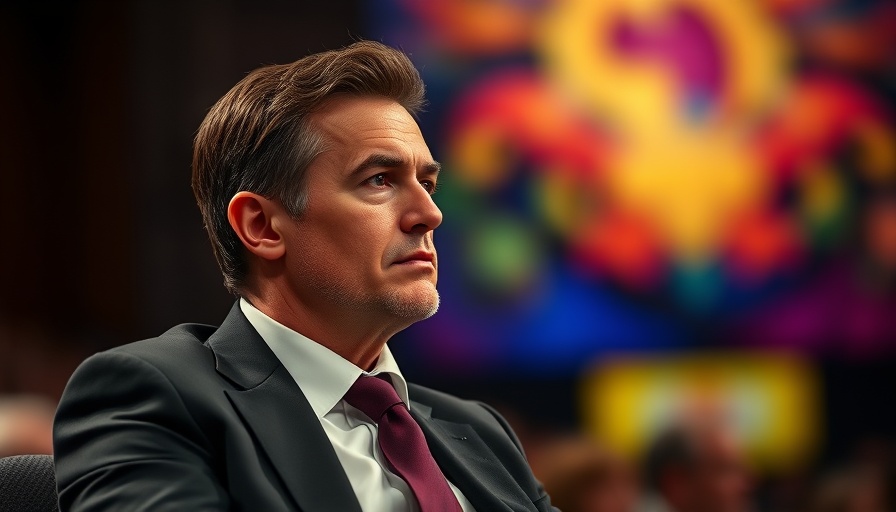
Kusaug's Crucible: A Test for Leadership in Ghana
The Kusaug area stands at a dangerous crossroads, facing an unprecedented crisis that demands robust leadership and justice. After years marred by conflict, the Supreme Court of Ghana delivered a decisive ruling in early 2024, a ruling that should facilitate peace and order. Instead, the situation has exacerbated, leaving the Kusasi people in a state of distress.
In a show of overwhelming support, the Kusasi people placed their faith in His Excellency President John Dramani Mahama. Their expectation was high; they believed Mahama would be the transformative leader capable of breaking a long-standing cycle of violence and restoring dignity in Kusaug. Justice delayed was seen as justice denied, and this pivotal moment was viewed as a chance for renewal. But hope is rapidly fading.
The Role of Mediation: A Double-Edged Sword
Despite the Supreme Court’s ruling, one faction continues to defy the legal framework, taking advantage of a flawed mediation process led by the Otumfuo Committee. Initially established to foster dialogue, this committee’s actions now appear to stall progress, breeding insecurity among the populace. This raises critical questions: Are citizens being penalized for exercising their democratic right to choose a leader who resonates with them? The psychological ramifications are severe—fear looms over entire communities, deeply affecting cultural traditions and unraveling the social fabric.
Systemic Challenges: Violence and Impunity
The emotional and psychological toll on the Kusasi people is profound. Recent reports show that military presence, arbitrary arrests, and rising violence continue to haunt the region. The innocent pay the cost as empty apologies and superficial reconciliations fail to halt the bloodshed. How many more lives must be sacrificed before the political leadership acknowledges the urgency of the moment? The perpetual cycle of violence diminishes the principles of justice and equality for all citizens.
President Mahama: The Call for Action
As the leader entrusted by the people, President Mahama's legacy is on the line. The pressing need for immediate executive action cannot be understated. A public reaffirmation of the Supreme Court’s ruling is essential. Directing government institutions to enforce the ruling sincerely and without discrimination is the first step toward restoring order.
Reforming Security: The Need for Accountability
One of the crucial factors in ensuring peace is the reform of the security sector. Security forces have been implicated in human rights abuses, and addressing these issues requires urgency. Ensuring that those who commit misconduct are held accountable will send a clear message: the era of impunity must end.
Urban vs. Rural Dynamics: Fulfilling Promises
Additionally, the long-promised establishment of the Kusaug Region, which would grant administrative autonomy and resources, must be expedited. The delivery of these promises is crucial not only for local empowerment but also for the greater integration of Kusaug into Ghana’s national identity.
Paving the Way Towards National Healing
A comprehensive national healing campaign aimed at reconciliation and cultural restoration is paramount. The damage inflicted by years of marginalization cannot be overlooked. Such an initiative would reaffirm Kusaug's rightful place in Ghana’s narrative, restoring faith among its people and promoting unity across diverse communities.
The Bigger Picture: A National Crisis
The ongoing suffering in Kusaug is not merely a local issue; it reflects on the very soul of Ghana. Every day that this crisis persists weakens the foundational ideals of democracy, justice, and unity. Leadership extends beyond the political realm; it is an ethical commitment to safeguard the dignity and rights of every citizen.
Conclusion: A Call to Action for Change
In this moment of crisis, the call for leadership cannot be ignored. President Mahama has a unique opportunity to redefine justice in Ghana, not just in Kusaug but for the entire nation. A decisive, proactive stance is necessary to overcome the trials currently plaguing the region. The implications of his actions—or inactions—will echo across the nation.
For business leaders and executives, this situation presents an opportunity to reflect on leadership qualities that can make a difference in times of crisis: empathy, decisiveness, and the courage to stand for justice. As the nation watches, the urgent question is: Will Ghana rise to face its challenges head-on? The answers may yet craft a legacy of resilience and unity for generations to come.
 Add Row
Add Row  Add
Add 




Write A Comment